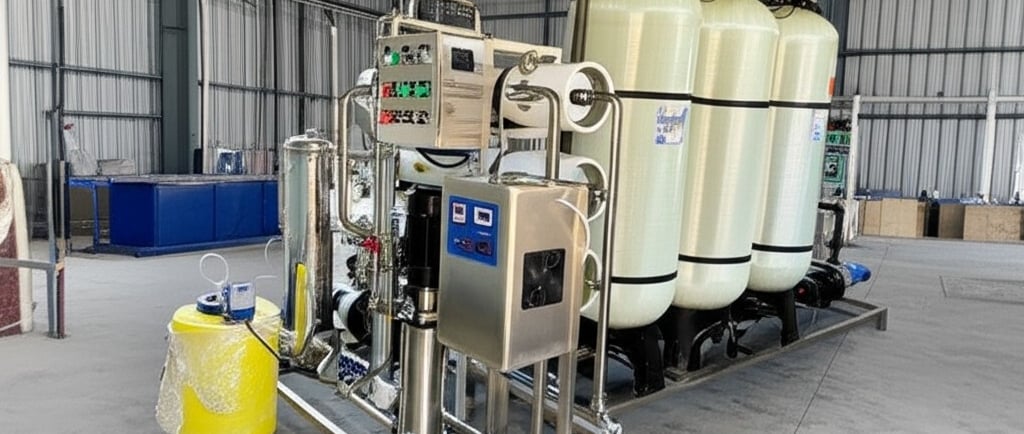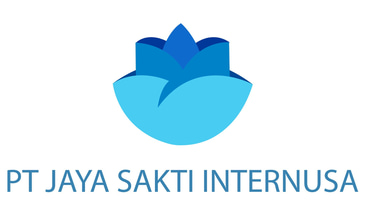Integrated Water Treatment Services: From Analysis to Maintenance


Water treatment is no longer just a technical necessity—it has become a critical component of sustainable industrial operations. Companies around the world face mounting challenges such as water scarcity, regulatory compliance, and the need for efficient resource management. In this landscape, Integrated Water Treatment Services are emerging as the gold standard. By combining initial water analysis, system design, installation, monitoring, and long-term maintenance, businesses can ensure safe, efficient, and sustainable use of water resources.
As a trusted provider, PT Jaya Sakti Internusa offers complete solutions that extend beyond equipment delivery. With decades of experience and international certifications, the company ensures clients receive water treatment systems that meet the highest standards while remaining adaptable to future challenges.
Why Integrated Water Treatment Services Are Essential
In the past, water treatment often focused narrowly on solving immediate contamination or supply issues. However, industries today require more comprehensive strategies that take into account long-term efficiency, regulatory compliance, and sustainability. Integrated water treatment services address these demands by offering a full spectrum of solutions—starting with water testing and continuing all the way to after-sales support.
Such services eliminate the risks of fragmented approaches. For example, installing a high-performance system without ongoing maintenance could lead to costly breakdowns. Similarly, analyzing water without integrating the findings into tailored solutions can result in ineffective treatment. By adopting a complete service package, industries ensure consistency, reliability, and measurable results.
This integrated approach is also aligned with global trends in environmental management. According to World Bank, water stress and pollution are among the biggest challenges for sustainable development. By choosing providers that offer end-to-end services, industries contribute to global goals while improving operational efficiency.
The Role of Comprehensive Water Analysis
Any effective water treatment service must begin with accurate water analysis. This critical step determines the chemical composition, biological content, and physical characteristics of water sources. By identifying contaminants such as heavy metals, bacteria, or excessive mineral content, experts can design systems that specifically address each challenge.
Comprehensive analysis prevents unnecessary costs by ensuring that treatment systems are neither underdesigned nor overengineered. For instance, groundwater with high iron content may require a different treatment process compared to surface water with high organic matter. A tailored approach guarantees both cost-efficiency and long-term performance.
PT Jaya Sakti Internusa integrates advanced laboratory testing and on-site evaluations as part of its initial service. This ensures that every project is built on accurate data, giving clients confidence that the solutions provided are both practical and effective.
Designing Customized Treatment Solutions
Once analysis is complete, the next step is system design. Effective water treatment systems must balance multiple factors: the type of contaminants present, water volume requirements, industry regulations, and future scalability. This stage requires technical expertise and a deep understanding of industrial operations.
Customized solutions often combine multiple technologies such as Reverse Osmosis, Ultrafiltration, Nanofiltration, and chemical dosing systems. Cooling towers, wastewater recycling, and specialized filtration systems may also be integrated depending on the client’s specific needs. The goal is to deliver water that meets both operational and regulatory standards without excessive energy consumption or waste generation.
By offering integrated design services, PT Jaya Sakti Internusa ensures that each solution fits seamlessly into the client’s existing infrastructure. This reduces installation time, minimizes disruption, and maximizes efficiency.
Installation and Commissioning: Setting the Foundation
Even the most advanced system designs will fail if installation is poorly executed. That is why integrated services also cover installation and commissioning, ensuring that every component is properly assembled, calibrated, and tested before being put into operation.
Proper commissioning includes evaluating system performance under real operating conditions, verifying that output water meets quality standards, and training client staff in basic operations. This stage is crucial for preventing early failures and ensuring long-term reliability.
PT Jaya Sakti Internusa provides expert installation teams supported by engineers who understand both the technical and operational aspects of water treatment systems. Their holistic approach guarantees that clients receive a turnkey solution that functions as intended from day one.
Continuous Monitoring and System Optimization
Water quality can fluctuate due to seasonal changes, new regulations, or shifts in industrial demand. Integrated services therefore include continuous monitoring and optimization to adapt to evolving conditions.
Modern water treatment systems often include digital controllers, sensors, and remote monitoring platforms that track water quality in real time. Data collected from these systems allows experts to fine-tune performance, reduce energy consumption, and detect potential issues before they escalate into costly failures.
Regular system audits and performance reviews also play a role in maintaining efficiency. By scheduling periodic checkups, industries can identify opportunities for upgrades, extend system lifespan, and reduce operational costs.
Preventive and Corrective Maintenance
Maintenance is the backbone of long-term water treatment performance. Without proper upkeep, even the most advanced systems can fail prematurely. Integrated services typically include both preventive and corrective maintenance, ensuring that systems remain reliable over time.
Preventive maintenance involves scheduled inspections, membrane cleaning, replacement of consumables, and performance calibration. Corrective maintenance, on the other hand, addresses unexpected failures, ensuring minimal downtime. Together, these services maximize system availability and protect the client’s investment.
PT Jaya Sakti Internusa emphasizes maintenance as a key component of its integrated service model. By providing reliable after-sales support, the company ensures that clients enjoy consistent performance and compliance with local and international standards.
Sustainability Through Integrated Water Management
Sustainability is no longer optional; it is a business imperative. Integrated water treatment services play a critical role in reducing water waste, minimizing chemical use, and lowering energy consumption. By incorporating recycling and reuse into system design, industries can significantly reduce their environmental footprint while cutting costs.
This is especially important in regions where water scarcity poses a significant risk to long-term industrial growth. By adopting integrated services, businesses can align with sustainability goals, meet international environmental standards, and strengthen their reputation as responsible corporate citizens.
PT Jaya Sakti Internusa: Your Trusted Water Treatment Partner
With decades of experience and a reputation built on trust, PT Jaya Sakti Internusa provides more than just equipment. The company delivers integrated water treatment services from analysis to maintenance, ensuring that clients receive reliable, sustainable, and future-ready solutions.
Holding both ISO and SNI certifications, PT Jaya Sakti Internusa guarantees compliance with international standards while adapting solutions to the specific needs of Indonesian industries. By combining technical expertise, cutting-edge technology, and a customer-focused approach, the company stands as a leading partner for industries that demand excellence in water management.
Conclusion
In today’s industrial landscape, water treatment cannot be viewed as a one-time investment. It requires a comprehensive, integrated approach that spans analysis, system design, installation, monitoring, and ongoing maintenance. By adopting Integrated Water Treatment Services, industries secure reliable water supply, regulatory compliance, operational efficiency, and long-term sustainability.
As challenges like water scarcity and stricter regulations continue to intensify, the role of trusted providers becomes even more crucial. PT Jaya Sakti Internusa exemplifies this role, offering solutions that are not only technically sound but also aligned with the broader goals of sustainability and industrial resilience.
By choosing integrated services, businesses are not just treating water—they are investing in a sustainable future.
